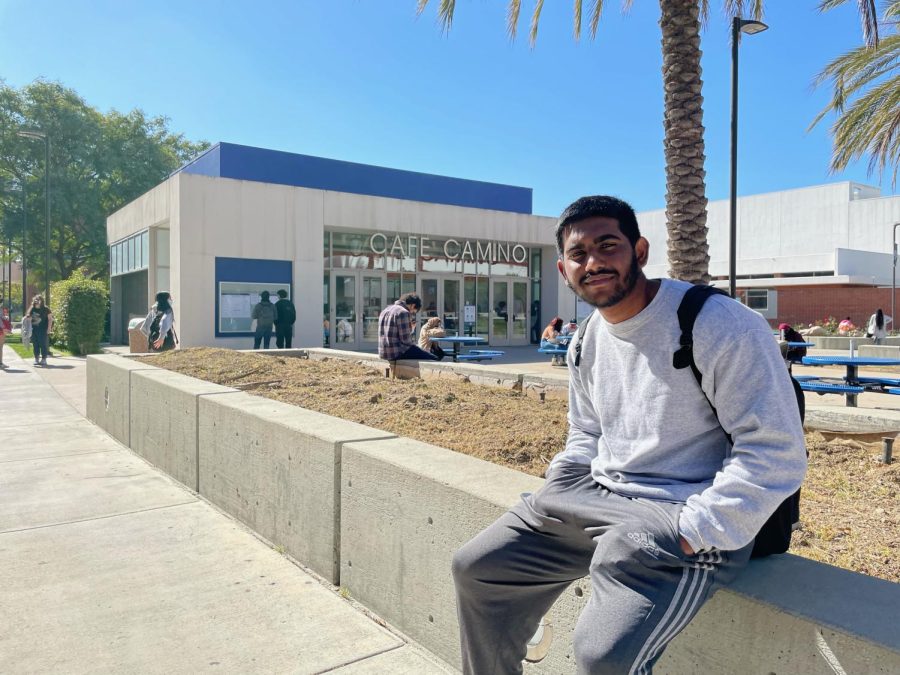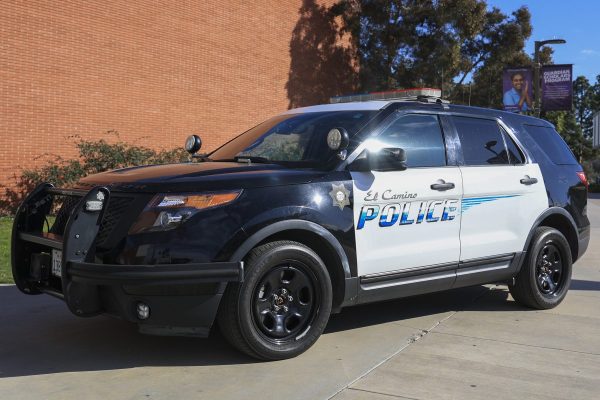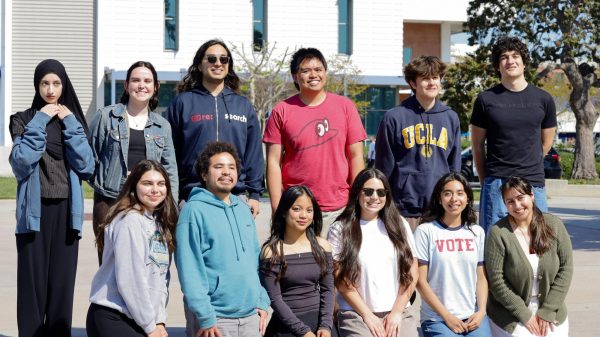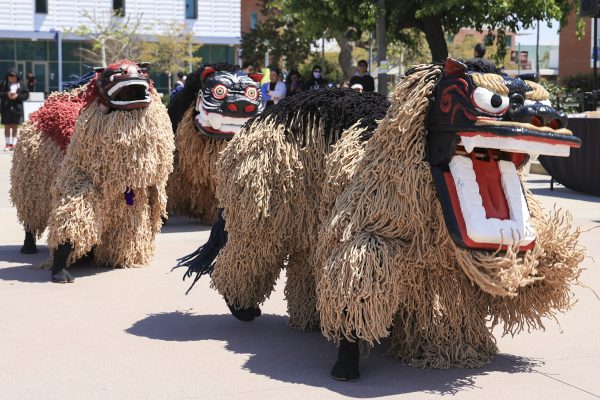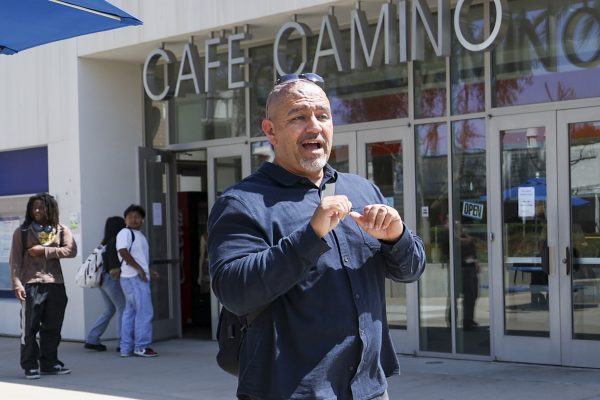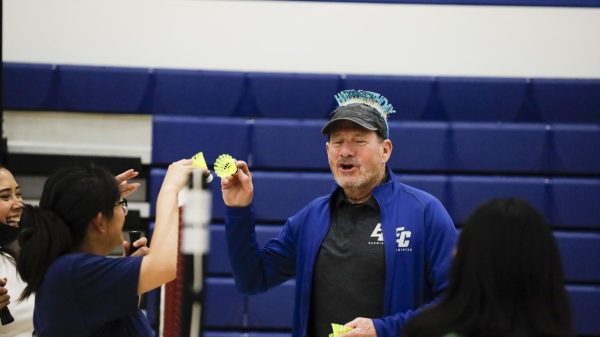Students and staff give thoughts on campus entry process
Syed Suhail (19) sits in front of Cafe Camino on Wednesday, Feb. 16. Suhail believes that the current system for individuals getting onto campus is not strong, as anyone could be dishonest about symptoms. Ethan Cohen/The Union.
As the beginning of the spring 2022 semester continues, multiple classes are making a return to “face-to-face” lectures and labs held on campus.
Students and staff members making the return to campus are required to use the World Back to Work (WBTW) service in order to gain clearance to campus and grab wristbands as proof of being free from COVID-19 symptoms at check-in kiosks.
The Union’s staff writers and editors interviewed several students and college staff regarding their thoughts on the process of getting into campus. Here is what they learned:
Syed Suhail, a computer science major at El Camino College (ECC) questions the efficiency of the kiosk and wristband system, having concerns about other students being dishonest and possibly coming to campus with COVID symptoms.
With the concern of dishonesty, Suhail fears that he may possibly catch the virus which will take time away from his in-person learning.
“You can easily just lie about your symptoms [because] a lot of people really care about the classes they are taking,” Suhail said.
While some students might think that the system could cause conflict, others don’t think the same way.
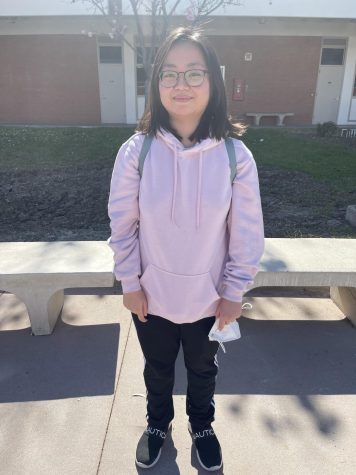
Athena Tran, a radiologic tech major shares her excitement about making the return to campus, even if the process is a little uncomfortable.
Tran said that she is happy to get out of the house and walk around campus after having classes online for the past 2 years.
Math major Madison Park (19), said that although this is her first semester on campus and that the kiosk and wristband system is not that big of a deal.
“It takes not that much time off of your day,” Park said. “I don’t think that it is hurting anyone.”
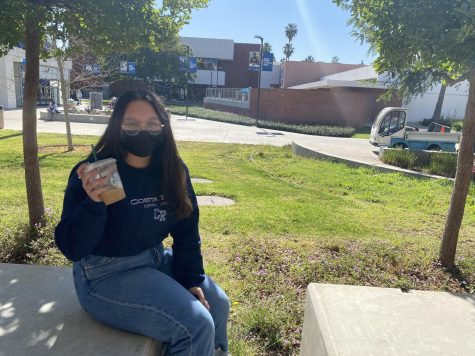
Sofia Nena, a biology major at ECC also shared a similar sentiment about the process not making a big difference.
“[The process] is pretty simple, you just show the pass and they just give me the wristband and that’s it. It was real easy for me personally but I don’t know about everyone else,” Nena said. “I think that it [health kiosks] is probably the best solution right now.”
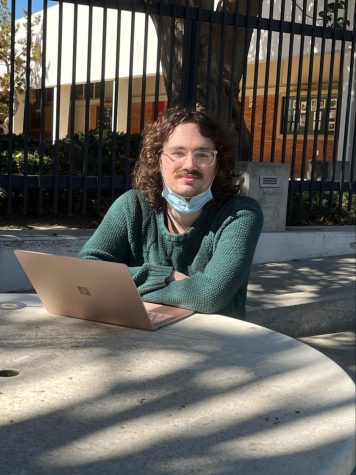
Billy Layne, an Anthropology major, said that he experienced no problems when going through the kiosk and also felt safer having to go through the process than none at all.
“I feel comfortable, knowing everyone here has to go through that to be here,” Layne said.
Students are not the only ones having to go through the process of coming back onto campus. Staff and employees at ECC also have to go through WBTW and the lines that come with it, some even having gripes with the process.
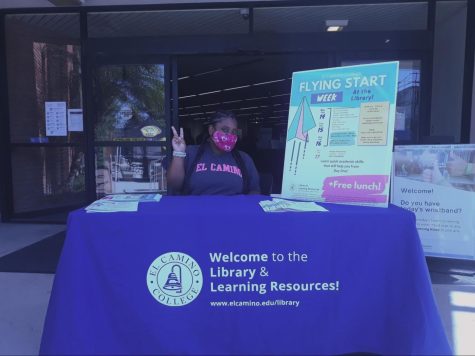
Keyari Frye, a librarian for both the Schauerman and music building library, has worked at ECC for 10 years and wants to be on campus more than at home, but the process isn’t as smooth as it could be.
“I wish they had a better system to be faster,” Frye said.
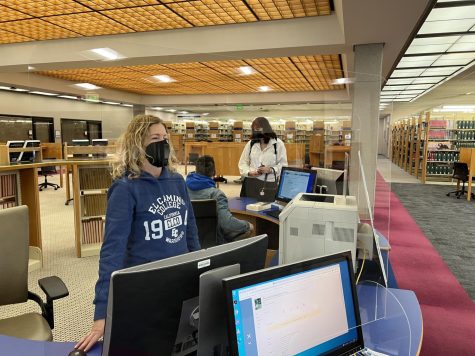
For digital resources librarian Mary McMillan, although the process for her wasn’t as harsh as she thought it was going to be, one thing that does affect her however is the parking.
ECC currently is not requiring parking passes or paid parking for anyone during this semester. This has influenced her daily routines, such as getting up earlier to be able to find parking.
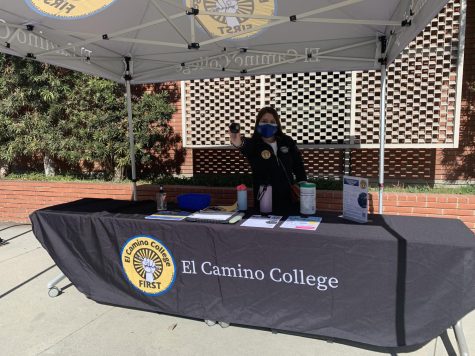
Vilma Fuentes, an advisor for El Camino’s counseling department said that the changes made at ECC, such as the WBTW kiosks, are going to take time for people to get used to.
“It’s about time management. It takes time but in about a week or two we’ll feel more adjusted,” Fuentes said.
Staff at ECC are not the only staff that has to deal with the lines of individuals getting wristbands, as WBTW staff try to deal with the long lines of individuals arriving on campus.
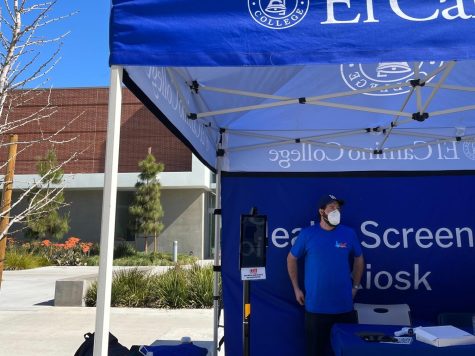
Scott Urian is one of the WBTW workers at the Gymnasium kiosk, tasked with scanning the QR codes of individuals coming onto campus and checking their temperatures in order to ensure the safety of those entering the premises.
“It’s been a pretty quick transition the past few days, students coming in, getting used to the campus, and us [workers] too, and getting more familiar with the process,” Urian said. “We’re all trying to get past the first few hurdles.”
Urian mentions that the process may be an extra step for individuals on campus but that it’s a necessary one to protect the college. The Kiosks are also stacked with sanitizers, masks and testing kits available as another layer of protection.
“I’m comfortable with the process and even California’s mask mandates helps. Everyone on campus is following the same rules, everyone is getting used to it,” Urian said.
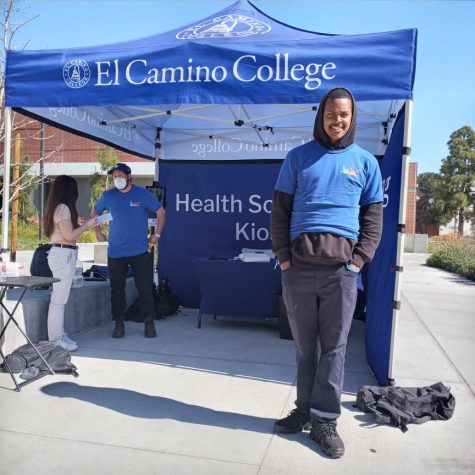
Kweinsi Givens also works at the same WBTW kiosk and said he is anxious working on the frontlines of school health safety, but the efforts he is participating in are not only for the betterment of the campus but also for the safety of everyone.
“I guess with COVID, nothing really goes as smooth as you think,” Givens said. “You take it day by day and stay optimistic.”
Although having to go through the process of coming onto campus might take time, some students like 19-year-old Priscila Garcia don’t have problems with waiting in line and believes that in-person learning is more successful than online learning.
“Taking classes in person is something I find easier and you meet more people when you’re on campus rather than when you’re online,” Garcia says.
Staff writers: Safia Ahmed, Elizabeth Basile, Nicholas Broadhead, Delfino Camacho, Ethan Cohen, Maureen Linzaga, Khallid Muhsin, Katie O’Brien, Margarita Sipaque, and Khoury Williams.
Editors Notes:
- Photo of Athena Tran was flipped from sideways to straight on Feb. 21 at 9:27 a.m.
- Adjusted feature photo placement on Feb. 21 at 4:49 p.m.
- Byline changed for accuracy on Feb. 22 at 11:00 a.m.
- Staff writer credits written in for proper credit on Feb. 22 at 11:26 a.m.


